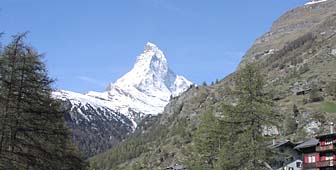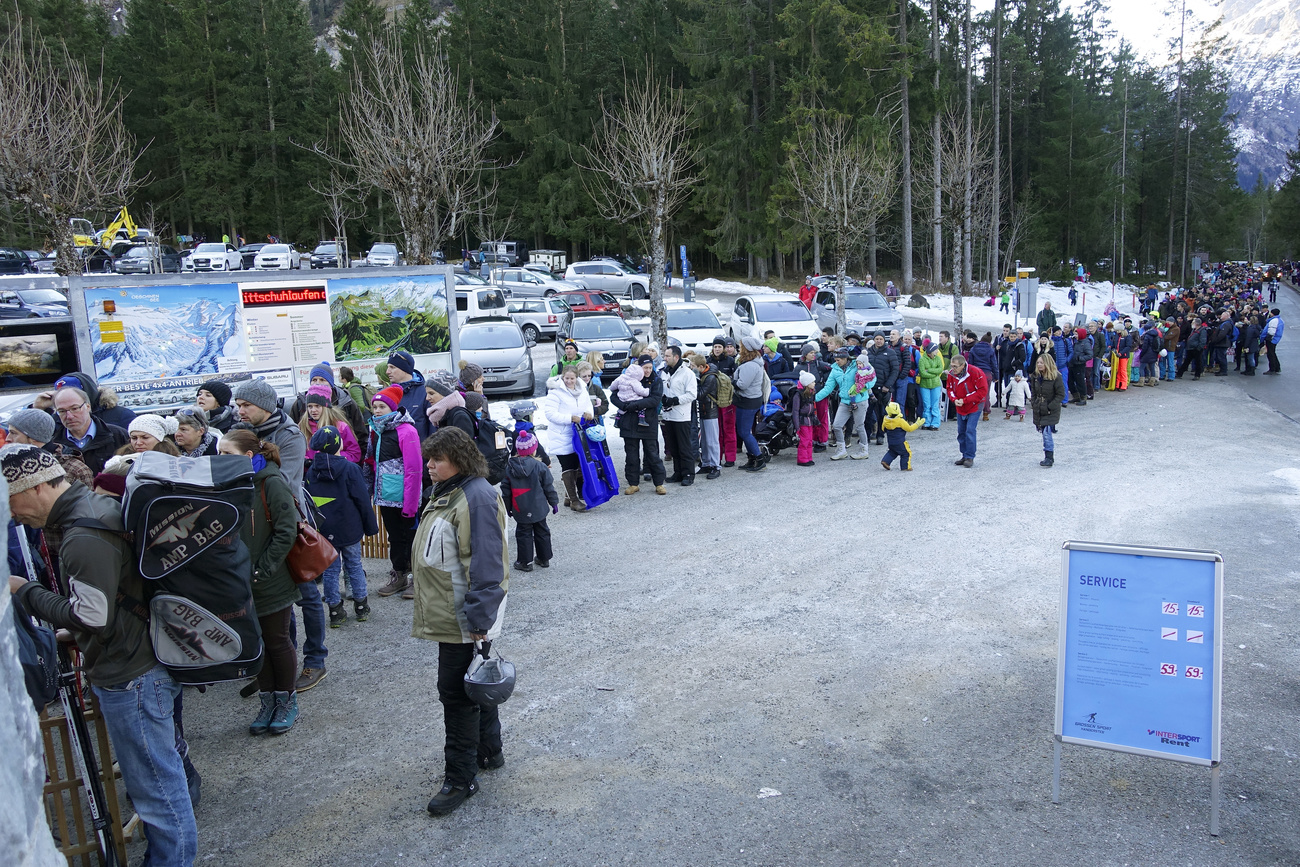The dark side of the Matterhorn

The Matterhorn is one of the world's most famous mountains and every year more than 1,200 people are plucked from peril as they try to conquer it.
Skiers, climbers and walkers flock to the mountain’s home in the alpine resort of Zermatt and all year round the streets throng with tourists from all over the world. Japanese, English, Italians, German and Swiss rub shoulders happily along the town’s main street.
Day in, day out, they take advantage of Zermatt’s full range of winter sports, miles of walking trails and endless mountaineering possibilities. But for many, the ultimate reason to travel to this alpine resort is to master the snow-capped triangle, which rises above the town – the Matterhorn.
However, the feat is gargantuan and one that only the most experienced and healthy of climbers should consider. Up on the mountain the weather can change suddenly, there are frequent rock falls and in winter there’s a high risk of avalanches.
As a result many climbers get into difficulty. But over the past few years a frightening situation has developed – inexperienced mountaineers are attempting to climb the Matterhorn on their own.
Bad weather conditions
According to Martin Lehner, a young, yet experienced, guide from Zermatt’s mountain guide office, more and more people are going up the Matterhorn, without the right equipment and in bad weather conditions.
“For example at the moment there is fresh snow on the Matterhorn and so there are no mountain guides in Zermatt who would climb it,” Lehner says. “But I know that tomorrow morning if I look through my binoculars there will be people on the mountain. They’re in Zermatt and they want to climb it and you can’t stop them.”
Bruno Jelk, the robust head of the mountain rescue service, agrees that people are being careless.
“There are two groups of people on the Matterhorn,” says Jelk. “The first group are experienced and have good material, but there is always a risk in the mountains and if there’s an accident its just tough luck.”
The second group, he says, are holiday-makers who want to climb the Matterhorn as part of a “to-do” list and who schedule it in for a day during their stay.
“People are in Zermatt for a week and for their whole stay the weather forecast is bad,” he explains, “they don’t listen to the rescue services who tell them not to climb and they get into trouble.”
Zermatt rescue service
But for those who get trapped, injured or simply bottle out, help is at hand in the form of Zermatt’s rescue service, made up of a terrestrial mountain rescue team and a helicopter rescue team provided by Air Zermatt.
The terrestrial team boasts 12 specially-qualified mountain guides and eight people who handle the avalanche rescue dogs. If more terrestrial help is needed reserves can be called out from the ski school and the cable car companies.
Air Zermatt, a commercial helicopter company, provides the air support. Roughly a third of all its flights are rescue missions and it offers a round-the-clock service, 365 days a year.
From its base close to Zermatt’s railway station, crews made up of a pilot, paramedic and doctor fly out to the accident scene and land as close as they can. There they stabilize patients and transfer them to hospital.
“We have to be at the accident scene within 20 minutes of receiving an emergency call,” says a tall, fit paramedic, Diego Larieda.
As he strides across the tarmac to a waiting helicopter he explains that the crews have five minutes to take off and then 15 minutes flying time. At night, the reaction target time is 35 minutes.
Often rescue missions are a joint effort between the terrestrial teams and the helicopter crew. The terrestrial teams take over when the helicopters can’t reach an accident scene, normally because of weather conditions.
Rescue costs
However, the rescue service comes at a cost and with more than 1,000 missions a year, the numbers soon add up.
The terrestrial mountain team has an annual budget of SFr500,000 ($343,880) whereas each time a helicopter is called out it costs between SFr2,000 and SFr15,000.
The difference in price depends on how long the rescue takes and the amount of drugs and equipment used to stabilize the patient. A subsequent transfer to a hospital in the nearby valley towns of Brig and Visp also adds to the costs, which are usually met by insurance companies.
It’s a slick operation run by everyday heroes, who really do save lives, but according to the rescue services the Matterhorn still manages to claim more than 30 people each year.
Some of these are caused by factors beyond anyone’s control such as avalanches and equipment failure, but many could be avoided.
Foolhardy
In most cases the alpine adventurers are foolhardy, but sometimes they are just plain stupid.
“There were some people who tried to bike down the Matterhorn,” says Diego Larieda from Air Zermatt. “They carried the bikes [part of the way] up and there was no way to bike down and they had to carry them back down.”
Another man from London also attempted an ascent in the fog saying he would be fine as he was used to foggy weather back home! Thankfully such lapses of common sense are rare.
But when it comes to mountain safety it’s really rather simple. “Climbers should be in good shape as it takes eight to ten hours to get to the top,” says the athletic Martin Lehner. “They should also be used to the altitude as the Matterhorn is 4,477 metres high and they should know how to use the equipment.”
“The best advice is to take a mountain guide, [like me],” he grins.
by Sally Mules

In compliance with the JTI standards
More: SWI swissinfo.ch certified by the Journalism Trust Initiative








You can find an overview of ongoing debates with our journalists here . Please join us!
If you want to start a conversation about a topic raised in this article or want to report factual errors, email us at english@swissinfo.ch.